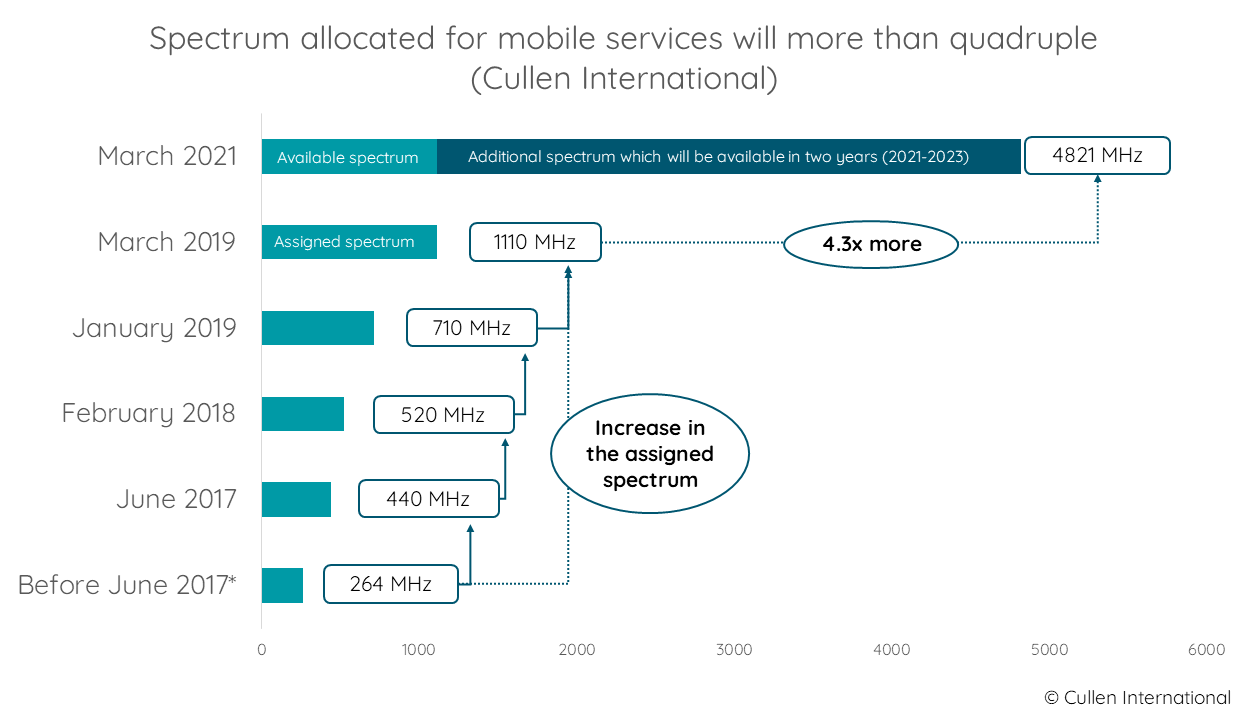CITC, the Saudi regulator, plans to quadruple the amount of spectrum for mobile use in the next three years.
Cullen International’s summary of CITC’s spectrum outlook plan highlights that, between 2021 and 2023, CITC will allocate extra spectrum, totalling about 4 GHz, for mobile use in the low (450 MHz, 600 MHz, 700 MHz), mid (1500 MHz, 2.1 GHz, 3.8–4 GHz) and high spectrum bands (26 GHz).

CITC will also release spectrum for many applications where demand is significantly increasing, including the internet of things (IoT), vehicle to everything (V2X) and Wi-Fi (6 GHz and 66‑71 GHz bands).
CITC plan also sets out the regulator’s approach for related spectrum issues, such as trading and new sharing techniques. In particular, CITC wishes to enable access to spectrum that is currently underutilised through the application of such tools, including a new light licensing system.
In the MENA region, only Qatar and United Arab Emirates have also adopted future outlooks for spectrum. Cullen International’s summary report compares CITC’s plan for mobile spectrum allocation with these countries.
For more information on our report, please click on “Request Access”, or on “Access the full content” in case you are a subscriber of our MENA Telecoms service.
more news
28 April 25
Global trends in 5G and beyond
Our Global Trends benchmark covers 5G policies, regulations, and commercial reality across 20 jurisdictions around the world. The coverage has been extended to include the Philippines and Vietnam from this edition.
25 April 25
FTTH roll-out in MENA expands with different approaches to deployment
Our latest NGA deployments benchmark shows that all of the 13 studied countries in the Middle East and North Africa region (MENA) have started to deploy fibre-to-the-home (FTTH) networks.
24 April 25
Understand the EU’s VAT and customs rules for cross-border e-commerce
Cullen International’s new report explains how EU VAT and customs rules apply to imported e-commerce goods, as well as describing the customs reform package, proposed by the European Commission in 2023.